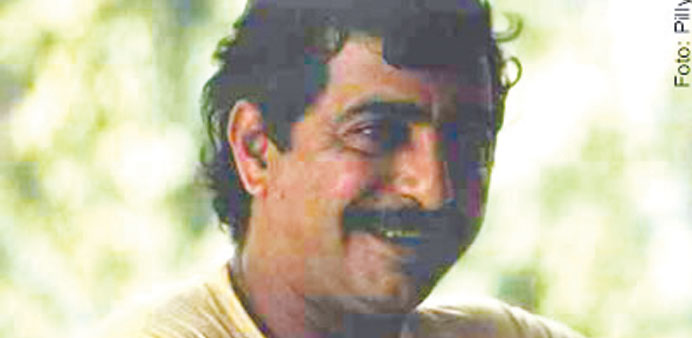By Jan Rocha and Jonathan Watts/Sao Paulo/Rio de Janeiro
When Chico Mendes was gunned down in the Amazon, the two policemen who were supposed to protect him were playing dominoes at his kitchen table. It was December 22, 1988.
The officers had been sent to the union activist’s small wooden home in Xapuri after he received death threats from landowners, who were enraged by his campaign to prevent forest clearance. But the police dropped their guard when Mendes stepped out to have a shower in the backyard. A single bullet from a .22 rifle killed him instantly. The assassin, a rancher named Darcy Alves, said “it was like shooting a jaguar.”
Brazil yesterday marked the 25th anniversary of that murder, which far from killing off the forest conservation campaign has boosted its profile across the world, influencing a generation of conservationists and policymakers. Mendes is now a symbol of the global environment movement.
The Brazilian government has declared him Patron of the Brazilian Environment. Institutions have been named after him and his home state of Acre has pioneered extractive reserves.
In recognition of Mendes’s achievements, there will be memorial ceremonies and documentaries about his legacy this weekend. Many of his ideas live on through associates, notably Marina Silva, who became environment minister and put in place Amazon protection systems that are credited with an impressive fall in the rate of deforestation until recently.
But the celebrations will be tempered by the resurgent influence of the landowners’ lobby, a recent sharp uptick in Amazon clearance and renewed questions about the Brazilian government’s willingness to protect forest workers and conserve the biodiverse habitat on which they depend.
Born in 1944, Francisco Alves Mendes Filho was the son of a soldier in the “Rubber Army,” the 50,000 men recruited in 1943 from Brazil’s impoverished northeast and shipped to the Amazon to tap rubber for the allied war effort. With Malaya occupied by the Japanese, the US was desperate for rubber, and Brazil promised to meet the need. The tappers were largely abandoned to their own fate, many dying from disease or attacks by wild animals. When the war ended, government promises of compensation and tickets home were forgotten and many, including Mendes’s father, never returned.
Growing up in the forest, Chico began tapping as a child. As president of the Xapuri tappers’ union, he set up a national organisation, bringing the tappers’ fight to save the forest to global attention. American environmentalists took him to Washington to persuade the World Bank, the Inter-American Bank and Congress that cattle projects in the Amazon should not be funded. As an alternative, he proposed the creation of extractive reserves - protected areas that would allow public land to be managed by local communities.
In 1987 Mendes won the UN’s Global 500 award in recognition of his environmental achievements, although he saw himself primarily as a campaigner for a fairer society. As he said: “At first I thought I was fighting to save rubber trees, then I thought I was fighting to save the Amazon rainforest. Now I realise I am fighting for humanity.”
His opponents were cattle ranchers, who had been moving into the Amazon since the 1970s when they were encouraged by the military who ruled Brazil and financed by official banks. After the dictatorship ended in 1985, these landowners set up the Rural Democratic Union to thwart the land reforms promised by the government and intimidate unionists and
conservation activists.
Mendes was neither the first nor the last to lose his life for standing up to landowners. Since 2002, Brazil has accounted for half the killings worldwide of conservation activists, according to a survey last year by Global Witness. Mendes was an obvious target. As well as lobbying successfully to end international financing for Amazon clearance, he organised the rubber tappers in non-violent resistance. His success made him many enemies.
His killer was from a family of cattle ranchers. Darcy Alves, 22, and his father Darly were convicted in 1990 and jailed for 19 years. Although they are now free, former associates of Mendes said the assassination backfired. “Those who killed Chico got it wrong. They thought by killing him, the tappers’ movement would be demobilised, but they made him immortal,” said Gomercindo Rodriquez, an agronomist who became Mendes’s trusted adviser.
Mendes wanted the forest to be used sustainably rather than cut off from economic activity (as some environmentalists wanted) or cut down (as the farmers wanted). He proposed the establishment of extractive reserves for tappers, Brazil nut collectors and others who harvested nature in a balanced way. After his death the first of many such reserves in Brazil, the Chico Mendes Extractive Reserve, was created. After years of decline, the demand for latex from a local condom factory has boosted the price of rubber, and many tappers have returned to the forest. “This is Chico’s legacy,” said Gomercindo. “The extractive reserves have meant the preservation of the forest.” -Guardian News & Media

Chico Mendes
